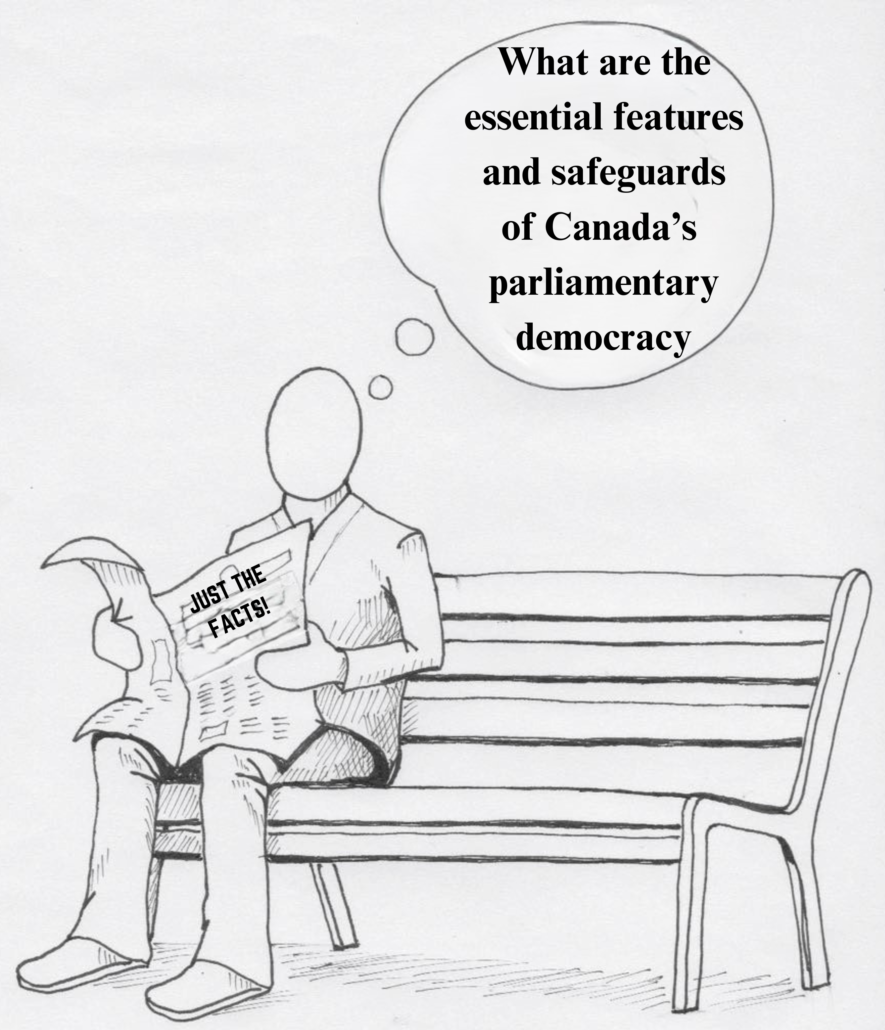The Three Branches of Government in Canada’s Parliamentary Democracy
In Canada’s parliamentary democracy, there are three branches of government: 1. the legislative branch, being our elected officials who create laws; 2. the executive branch (including the administrative state consisting of appointed officials), who implement the laws; and 3. the judiciary, comprising judges who interpret and apply the law to individual cases.
Canadians rely on the judiciary to ensure that the legislative and executive (including administrative) branches of government behave legally and do not overstep their boundaries. To remain the guardian of the democratic rule of law, the judiciary must remain independent, and its judges must be willing to entertain and scrutinize all relevant evidence available for the cases over which they preside. Failing to do so makes it impossible to challenge the legality of both the creation and implementation of laws which infringe on the rights of citizens.
In the parliamentary democracy of Canada, people have the right, guaranteed by the Charter of Rights and Freedoms, to challenge the legality of laws, governmental policies, and decisions. The rule of law ensures the uniform and predictable enforcement of these rights and freedoms. Furthermore, the rule of law is a principle fundamental to democracy; according to this principle, the law applies equally to all—individuals and government alike.[1]
Judicial Guardianship of the Democratic Rule of Law Fundamental to Canada’s Parliamentary Democracy
To ensure the integrity of Canadian democracy, independent, competent, and impartial judges must uphold the rule of law by ensuring that both the legislative and executive branches of Canadian government act legally and that people living in Canada are not subject to arbitrary state action. The need for such judicial guardianship is greatest in times of declared crises when emergency measures are imposed without recourse to established parliamentary processes.
The need for court supervision and intervention to protect rights is greatest in times of declared emergency when government actions—such as the enactment of emergency measures and issuing of interim orders overriding rights and standard regulatory processes—deviate from normal democratic process. Canada’s courts must remain independent—they must be prepared to scrutinize the legal actions and pronouncements not only of representatives within the legislative branch but also those of the unelected officials within the executive branch of government and this includes, of necessity, the high-ranking bureaucrats within the administrative state. Even when the administrative state is owed deference because of its assumed expertise, this deference is not final or absolute: the administrative state is not an infallible source of information or decision-making.
When the independence of Canada’s judiciary is compromised and courts fail, or refuse, to scrutinize the actions of the administrative state, it becomes impossible to challenge government proclamations. When the judiciary abandons its guardianship of the democratic rule of law then the people living within Canada’s borders are left without remedy against the infringement of rights by their government. In the parliamentary democracy of Canada, the primary duty of the courts is not to protect the administrative state by prioritizing the authority of its unelected officials but always, first and foremost, to protect individual rights and freedoms and to hold government to account. In keeping with its role as guardian of the democratic rule of law, the judiciary must remain independent.
[1] https://www.constitutionalstudies.ca/2019/07/rule-of-law/


